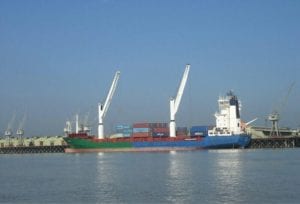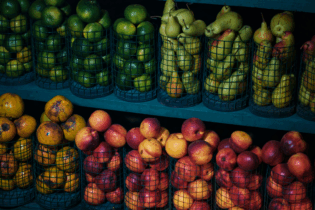The port of Maputo, Mozambique’s largest, is seeing “string growth in traffic,” which will more than double over the next six years, according to the Economist Intelligence Unit (EIU).
According to the EIU, in its June report on Mozambique, at the end of this year processed cargo is expected to total 14 million tons, as compared to 11.8 million tons in 2011, which represented a 30 percent increase on 2010. At a recent conference in Maputo, between the government, the ports users and its management, detailed plans for expansion of the port were presented. Within six years the amount of cargo processed is expected t total 40 million tons, as the result of investment of US$1.7 billion that is already underway and involves construction of larger terminals and refurbishment of road and rail facilities. “A lot of the port’s traffic is bulk goods, particularly coal and iron ore,” said the EIU. The port also serves neighbouring countries, particularly South Africa, but also Swaziland, Zimbabwe, and Botswana, which generates a quarter of all the country’s customs revenues. When the port was handed over as a concession, in 2003 to the Maputo Port Development Corporation (MPDC) consortium, traffic was just 4.8 million tons per year.The consortium includes Dubai World Ports, South African logistics group Grindrod, state port and rail managers Portos e Caminhos de Ferro de Moçambique, and local company Gestores de Moçambique.
The government recently launched the Strategy for Integrated Transport Development, which mainly involves interventions at larger ports, including the port of Beira. Taking into account the limited capacities of both the Sena line and the port of Beira, several studies are underway for construction of facilities to ensure the transport of high quantities of minerals expected to be mined over the next few years. Alongside several coal and other mining projects vast natural gas reserves have been identified in the Rovuma basin, in Cabo Delgado province. On 15 May, US company Anadarko Petroleum announced it had discovered 20 trillion cubic feet of natural gas, thus increasing its previous estimate for reserves in the area to 50 trillion and, in the same exploration area, Italy’s ENI has found reserves of 40 trillion cubic feet. Mozambique’s gas industry is expected to attract investments of US$68 billion, which is more than five times the country’s GDP in 2011. The development of the sector will bring more tax revenues to the Mozambican state, thus reducing its dependence on international donor contributions to the State Budget. (macauhub)






